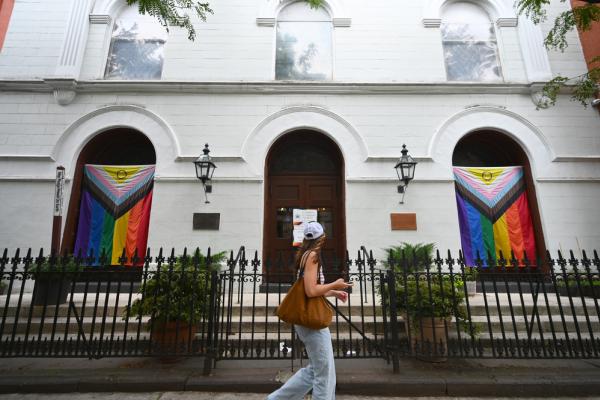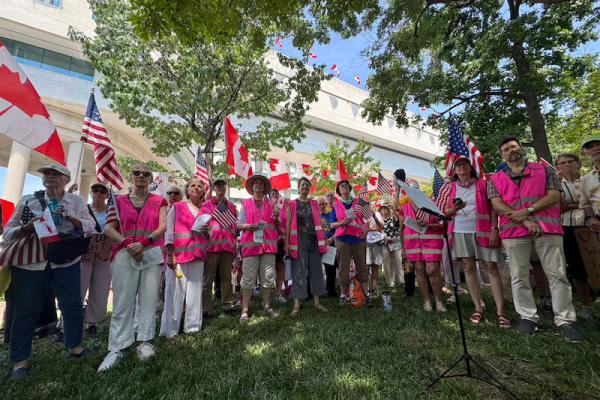I CAN NAME Emma’s favorite foods: roasted sweet potatoes and acai smoothie bowls. I’ve spent hours with her two sisters and classmates. We’ve traveled across the country together and danced to all her most-loved songs.
Week after week, with one tap on my screen, I instantly enter Emma’s world. As we laugh and smile at each other, it feels as if I am spending time with a friend, albeit a virtual one.
Emma Abrahamson is one of the countless Generation Z video bloggers on YouTube (some with tens of millions of followers) who are re-creating the nature of human friendship and experience.
The next presidential election will include a wave of Gen Zers voting for the first time. Who are they? What do they care about?
Beginning with those born in 1995, the same year as the commercial internet, Gen Zers only know a life of navigating multiple realities. While I (a millennial) am part of the generation shaped by the arrival of instant communication, Gen Z is the generation shaped by the arrival of instant experience. They are constantly living on the cusp of the virtual and the physical—and, just like Emma, draw the rest of us in.
Some worry that such a technology-centered existence, filled with YouTube friends and instantaneous everything, leaves young people isolated and ill-equipped to live with uncertainty. Researchers claim it is leading to the highest rates of anxiety, depression, and suicide ever recorded. With a third of 18- to 24-year-olds stating they do not believe in God, further questions are emerging about how technology is influencing a generation even more disconnected from spirituality and religion than their millennial predecessors.
Surprisingly, the tech-centered life is also giving way to the most inclusive and diverse American generation yet. As I’ve walked through high school hallways and listened to students share their values and beliefs, it’s clear that Gen Zers embrace their differences. They crave individuality, acceptance, dialogue, and engagement. By many indications, they are less self-centered than my millennial peers, and might prove to be more politically active.
With the first large cohort of Gen Zers becoming eligible to vote with the 2020 election, they bring their new multilayered realities with them to reimagining the “real” world—filling our political spheres with both their inclusion and impatience.
Accustomed to immediacy—and with an alleged average attention span of eight seconds—Gen Zers are asking why social and economic changes can’t also take place instantly. If I can post a video and get 200,000 likes across the globe in a matter of minutes, why can’t we all work together to rapidly stop climate change?
We’ve seen the fierce urgency of Gen Zers in the streets as they rally to stop gun violence and reverse climate change. Their other pressing concerns are erasing student debt, Medicare for all, and ensuring equality across identities—race, ethnicity, gender, sexuality, and socio-economic status.
Gen Zers are inviting us to re-envision what is possible and what could be “real.”
When I first clicked on Emma, I never thought that two years later I’d be calling her a friend. Perhaps that’s possible. Instead of change being slow and gradual, with Emma it can be quick and radical.
Eighty percent of college students claim they are going to vote in the 2020 election. One third of their age cohort are choosing not to align with any political party. Instead, they are ready to vote for those who most support their priorities, and who will act—and quickly!

Got something to say about what you're reading? We value your feedback!






